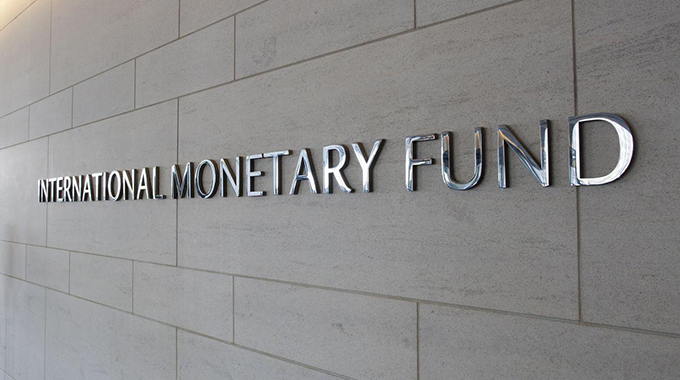Zim GDP to grow by 4,8pc — IMF

Africa Moyo-Deputy News Editor
ZIMBABWE’S real gross domestic product will grow by about 4,8 percent this year driven mainly by a strong performance in the mining and agriculture sectors, the International Monetary Fund said yesterday at the end of a visit by its team.
The IMF also welcomed the measures announced by the Ministry of Finance, Economic Development and Investment Promotion and by the Reserve Bank of Zimbabwe aimed at stabilising the foreign exchange market and lowering inflation.
In a statement yesterday at the conclusion of the IMF mission led by Mr Wojciech Maliszewski, the IMF said Zimbabwe’s economy “has continued its post-COVID recovery”.
The mission was in Harare from Wednesday last week to yesterday, to discuss recent economic developments and the economic outlook.
“Real GDP is projected to grow by around 4,8 percent in 2023, supported by strong activity in the mining sector and – reflecting the beneficial impact of structural reforms – in agriculture and energy sectors,” said Mr Maliszewski.
“Growth is expected to slow to 3,5 percent in 2024 due to weaker global demand for minerals and a weather-related slowdown in agriculture. As external conditions worsen, the economic outlook will even more crucially depend on progress toward macroeconomic stabilisation and transformational structural reforms.”
Mr Maliszewski said Zimbabwe dollar inflation and exchange rate pressures have abated in recent months, following significant price increases and exchange rate depreciation in the second quarter of 2023.
“The IMF mission notes the authorities’ recent efforts into stabilising the foreign exchange market and lowering inflation through the tightening of Zimbabwe dollar liquidity conditions.
“The mission welcomes the removal of surrender requirements on domestic sales in foreign currency. The announced plan for the transfer of RBZ foreign exchange liabilities to the Treasury is also welcome. Nevertheless, the parallel foreign exchange market premium is large at above 30 percent, and Zimbabwe dollar inflation remains high,” said Mr Maliszewski.
But the IMF said it was critical to implement key economic policy reforms identified in previous Article IV consultations to fully restore macroeconomic stability. It called for the need to comprehensively address the RBZ’s quasi-fiscal operations to mitigate liquidity pressures and thus re-anchor inflation expectations.
“These measures should be complemented with an enhanced liquidity management framework, including the use of appropriate interest-bearing instruments by the RBZ to mop up excess liquidity.
“Second, the consolidated fiscal stance, including quasi-fiscal operations, should be aligned with the short-term stabilisation objectives.
“Third, there is an urgent need to accelerate the foreign exchange market reform, by allowing more flexibility in the official exchange rate through a more transparent and market-driven price discovery; removing the restrictions on the exchange rate at which banks, authorised dealers, and businesses can transact; and further minimising export surrender requirements.
“Structural reforms aimed at improving the business climate and reducing governance vulnerabilities are key for promoting sustained and inclusive growth and would bode well for supporting Zimbabwe’s development objectives embodied in the country’s National Development Strategy 1 (2021-2025),” said Mr Maliszewski.
Sustainable development would also require a resolution of debt overhang, said the IMF, adding that they will continue to provide policy advice and extensive technical assistance in the areas of revenue mobilisation, expenditure control, financial supervision, debt management, economic governance, and macroeconomic statistics.
Zimbabwe is already engaging creditors after setting up a structured dialogue platform on arrears clearance and debt resolution process, whose champion is African Development Bank president Dr Akinwumi Adesina, with former Mozambique President Joachim Chissano as a high-level facilitator.
Already about five structured dialogue platforms have been held with creditors.
Mr Maliszewski said Zimbabwe’s reengagement efforts through the structured dialogue platform, “are well noted and are vital for attaining debt sustainability and gaining access to external financing”.
The IMF mission held meetings with Minister of Finance, Economic Development and Investment Promotion Professor Mthuli Ncube, his Permanent Secretary Mr George Guvamatanga, RBZ Governor Dr John Mangudya, the Deputy Chief Secretary to the President and Cabinet Mr Willard Manungo, other senior Government and RBZ officials, representatives of the private sector, civil society, and Zimbabwe’s development partners.
“The IMF staff wishes to express its gratitude to the Zimbabwean authorities and stakeholders for the constructive and open discussions and support during the mission,” said Mr Maliszewski.











Comments